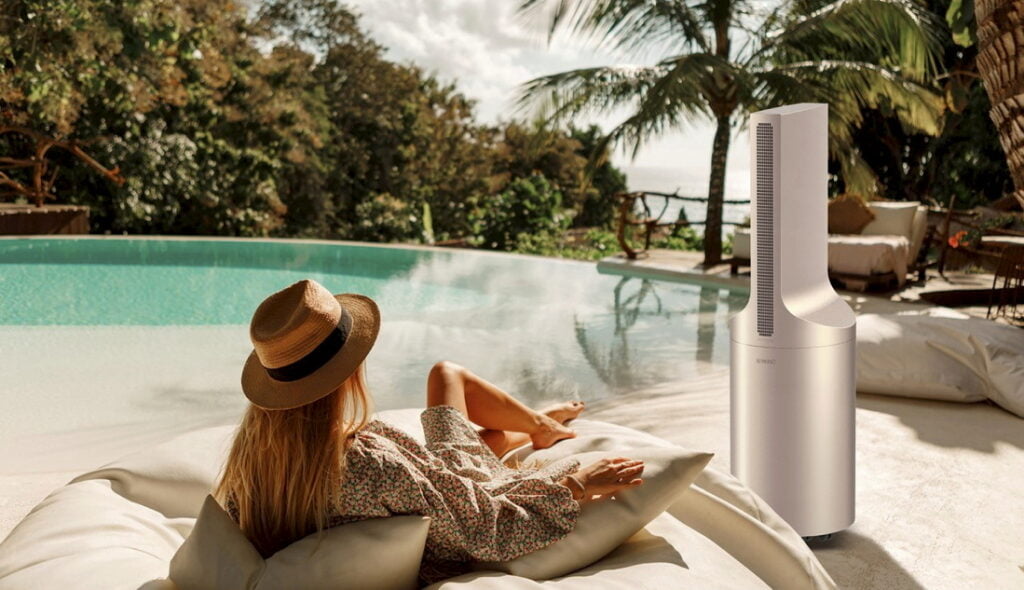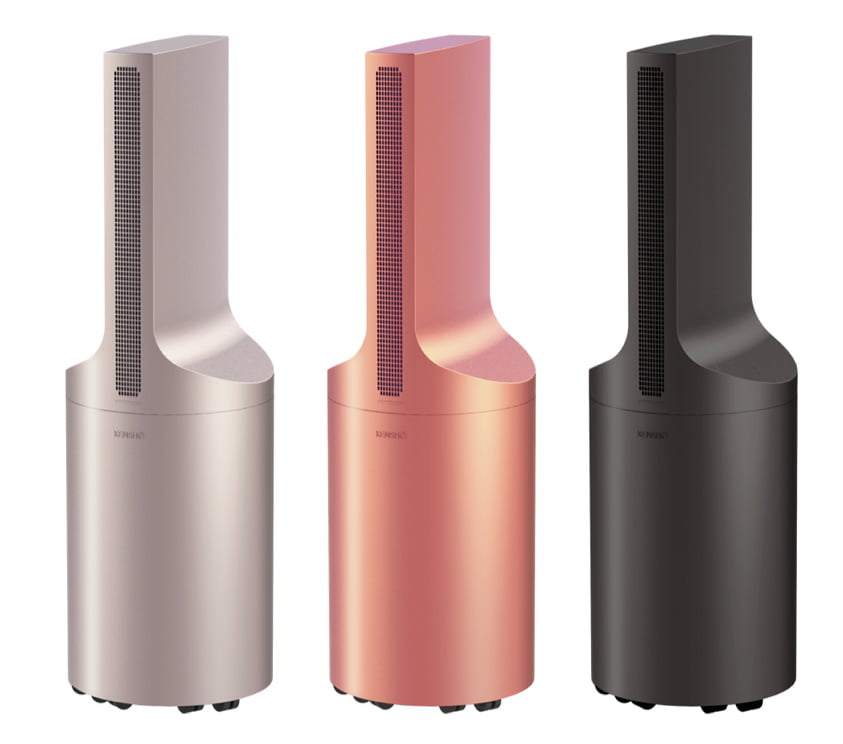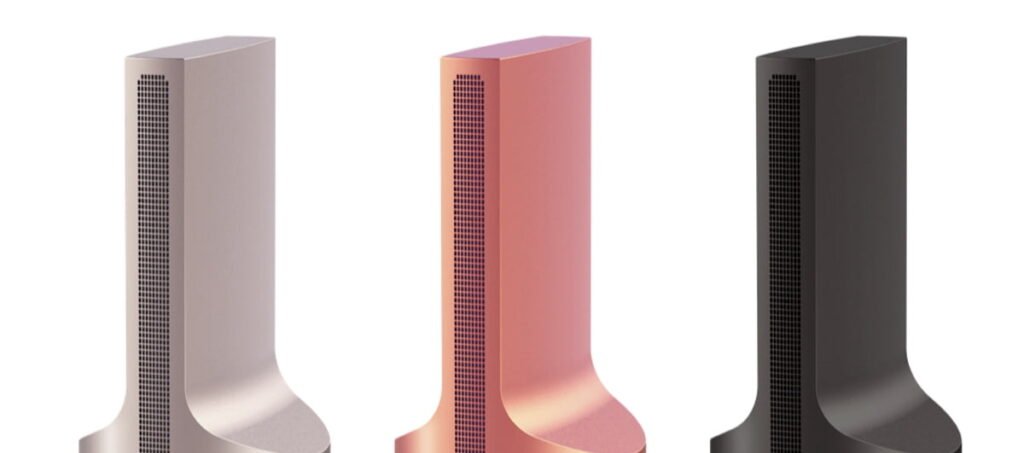Startup patents breakthrough way to stay cool outside without harming the planet
Liquid nitrogen is being used to power the world’s first air conditioner that works without electricity.
There are no wires, no power supply and no greenhouse gas emissions with the revolutionary Kensho unit, which has been developed and patented in Israel.
It simply, silently and gently blows out a jet of freezing nitrogen gas at -10C (14F) that cools the surrounding area.

The first models are to be piloted later this month at six restaurants in Tel Aviv and the company behind the invention, Green Kinoko, says they’ll be ready to market the product in summer 2023.
“We have invented an outside air conditioner which doesn’t need electricity. It creates its own energy,” CEO Tal Leizer tells NoCamels. She says it’s based on textbook physics.
“Everybody is amazed about how simple it is, how this energy was right under our nose, but we just hadn’t thought how to use it. Cooling is a lot more difficult than heating, but we have a great solution. And being outside is a basic human need, so we are addressing that as well.
Liquid nitrogen is widely used as a coolant in many industries, but Leizer and her team hit on the idea of building on existing technology to develop a patented system with it to cool the outside air.
“We create the energy from the pressure that is created between liquid nitrogen and gas nitrogen,” she says.
“We use liquid nitrogen at minus 196 degrees. When it turns into a gas it creates a very strong pressure and we use that pressure to activate a mechanical engine.”
Nobody has used liquid nitrogen before in this way, she says. Her team had been working with cryogenic (very low temperature) liquids in an unrelated project and realized the potential value of nitrogen.
Leizer, who also founded the tech consultancy firm Practical Innovation, said she realized there was a gap in the market when she was on holiday in Rome.

“It was the first time that we felt we couldn’t sit outside in the middle of the day because it was so hot,” she says. “It was 35C.
Sign up for our free weekly newsletter
Subscribe“We looked around and everything was empty, people didn’t want to sit outside. I did some research and found out that in 2010, the average summertime temperature in Rome was 30C to 31C (87F). Ten years later it was 35C (95F).
“A lot of cafes and restaurants can’t welcome their clients in the middle of the day, because it’s too hot outside.”
Two years and several million R&D dollars later, Green Kinoko, based in Shefayim, in central Israel, has the first working protoypes of a machine that could re-write the rules of outdoor air conditioning.

“We are now calculating the carbon footprint. We are using liquid nitrogen, which is a byproduct of the oxygen manufactured for hospitals. And our device emits nitrogen, an inert gas that we are breathing,” says Leizer.
“Compare that to other air conditioners with gas that is toxic and polluting. We don’t have any polluting gases. And we don’t consume electricity. An electric air conditioner adds heat to the atmosphere. We have an alternative that doesn’t add heat to the atmosphere.
“Our technology solves many environmental challenges such as greenhouse gas emissions, electricity consumption, noise, and humidity creation.”
The cooling solution makes outdoor living a pleasant experience, and helps combat global warming. Owners will typically have to replace the nitrogen every seven to 10 days, depending how much they use it.
Electric outdoor air conditioners use a water evaporation process to generate a cold breeze. They’re power-hungry because instead of cooling a room with closed windows, they’re bringing down the temperature in the great outdoors.
“We have invented a new generation of air conditioner,” says Leizer. “The technology is unique and amazing.”
The company already has facilities to produce the machines at scale for Israel, as well as its next target market, the UAE. It is now looking for investors to take the product global.
The price to the consumer is likely to be similar to conventional, electric machines. The price for the planet will be less.
Related posts

Editors’ & Readers’ Choice: 10 Favorite NoCamels Articles

Forward Facing: What Does The Future Hold For Israeli High-Tech?

Impact Innovation: Israeli Startups That Could Shape Our Future




Facebook comments